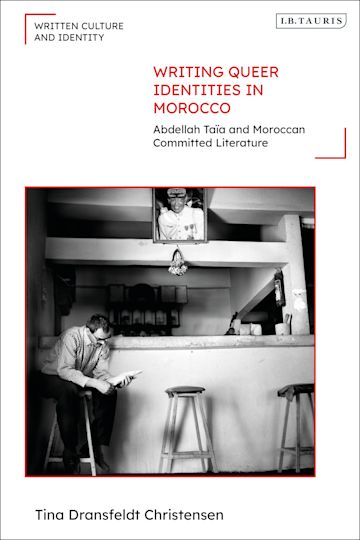This book explores queer identity in Morocco through the work of author and LGBT activist Abdellah Taïa, who defied the country’s anti-homosexuality laws by publicly coming out in 2006. Engaging postcolonial, queer and literary theory, Tina Dransfeldt Christensen examines Taïa’s art and activism in the context of the wider debates around sexuality in Morocco. Placing key novels such as Salvation Army and Infidels in dialogue with Moroccan writers including Driss Chraïbi and Abdelkebir Khatibi, she shows how Taïa draws upon a long tradition of politically committed art in Morocco to subvert traditional notions of heteronormativity. By giving space to silenced or otherwise marginalised voices, she shows how his writings offer a powerful critique of discourses of class, authenticity, culture and nationality in Morocco and North Africa.
يستكشف هذا الكتاب هوية المثليين في المغرب من خلال عمل المؤلف والناشط في مجال مجتمع الميم عبد الله طايع ، الذي تحدى قوانين البلاد المناهضة للمثلية الجنسية من خلال طرحه علنًا في عام 2006. من خلال الانخراط في نظرية ما بعد الاستعمار والكوير والأدب ، تفحص تينا درانسفيلدت كريستنسن فن طاعة ونشاطها في سياق النقاشات الأوسع حول الجنس في المغرب. من خلال وضع روايات رئيسية مثل “جيش الخلاص” و “الكفار” في حوار مع الكتاب المغاربة ، بما في ذلك إدريس الشريبي وعبد الكبير خطيبي ، توضح كيف تستفيد طاعة من تقليد طويل من الفن الملتزم سياسياً في المغرب لتخريب المفاهيم التقليدية للتغاير. من خلال إفساح المجال للأصوات التي تم إسكاتها أو المهمشة بطريقة أخرى ، توضح كيف تقدم كتاباته نقدًا قويًا لخطابات الطبقة والأصالة والثقافة والجنسية في المغرب وشمال إفريقيا.




